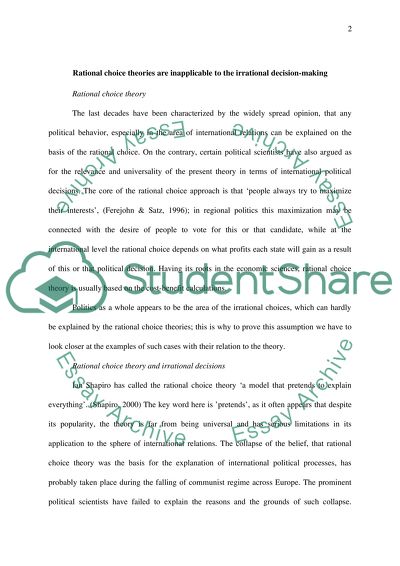Cite this document
(“Rational Choice Theory and Irrational Decisions Essay”, n.d.)
Rational Choice Theory and Irrational Decisions Essay. Retrieved from https://studentshare.org/politics/1509609-rational-choice-theory-and-irrational-decisions
Rational Choice Theory and Irrational Decisions Essay. Retrieved from https://studentshare.org/politics/1509609-rational-choice-theory-and-irrational-decisions
(Rational Choice Theory and Irrational Decisions Essay)
Rational Choice Theory and Irrational Decisions Essay. https://studentshare.org/politics/1509609-rational-choice-theory-and-irrational-decisions.
Rational Choice Theory and Irrational Decisions Essay. https://studentshare.org/politics/1509609-rational-choice-theory-and-irrational-decisions.
“Rational Choice Theory and Irrational Decisions Essay”, n.d. https://studentshare.org/politics/1509609-rational-choice-theory-and-irrational-decisions.


